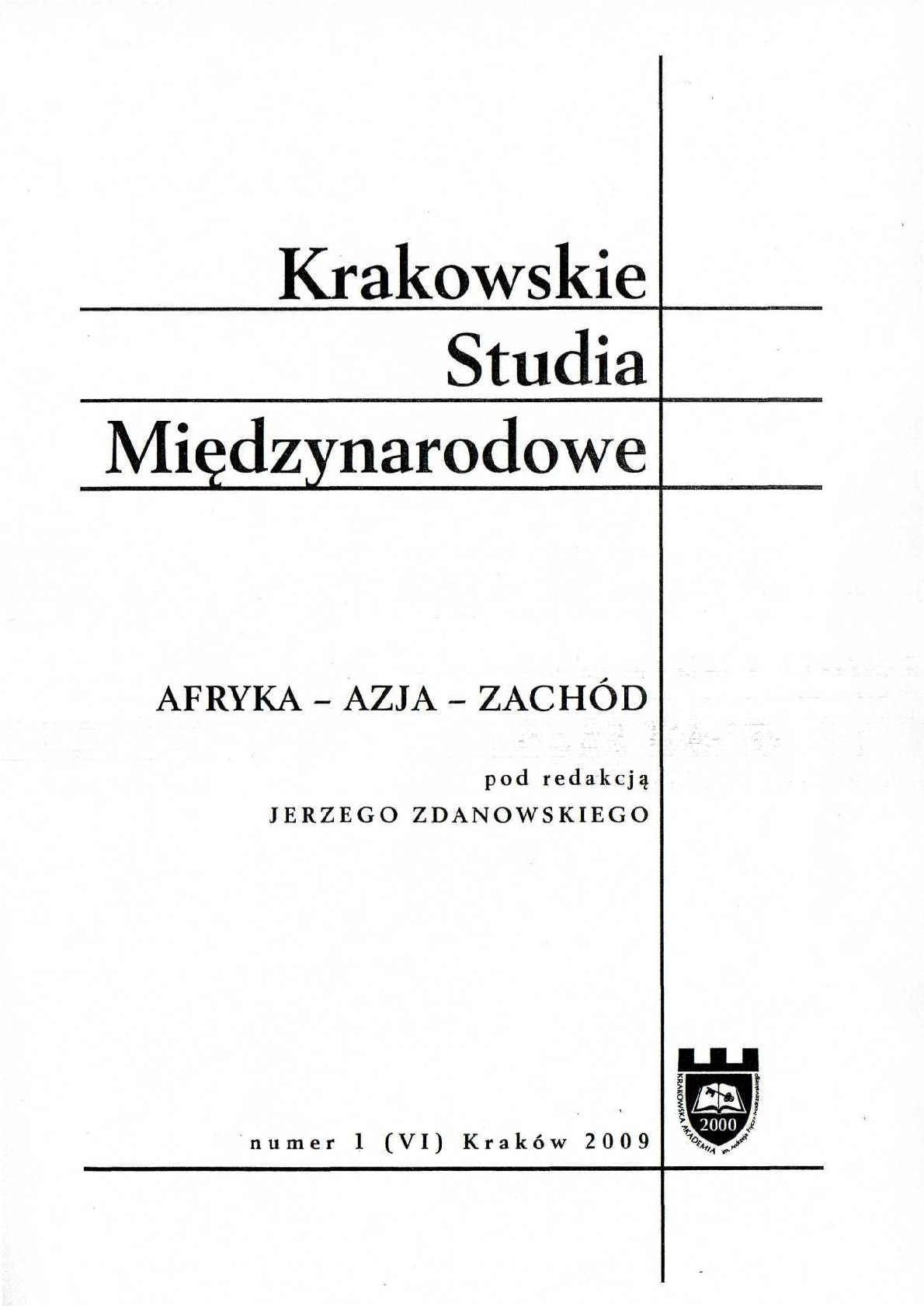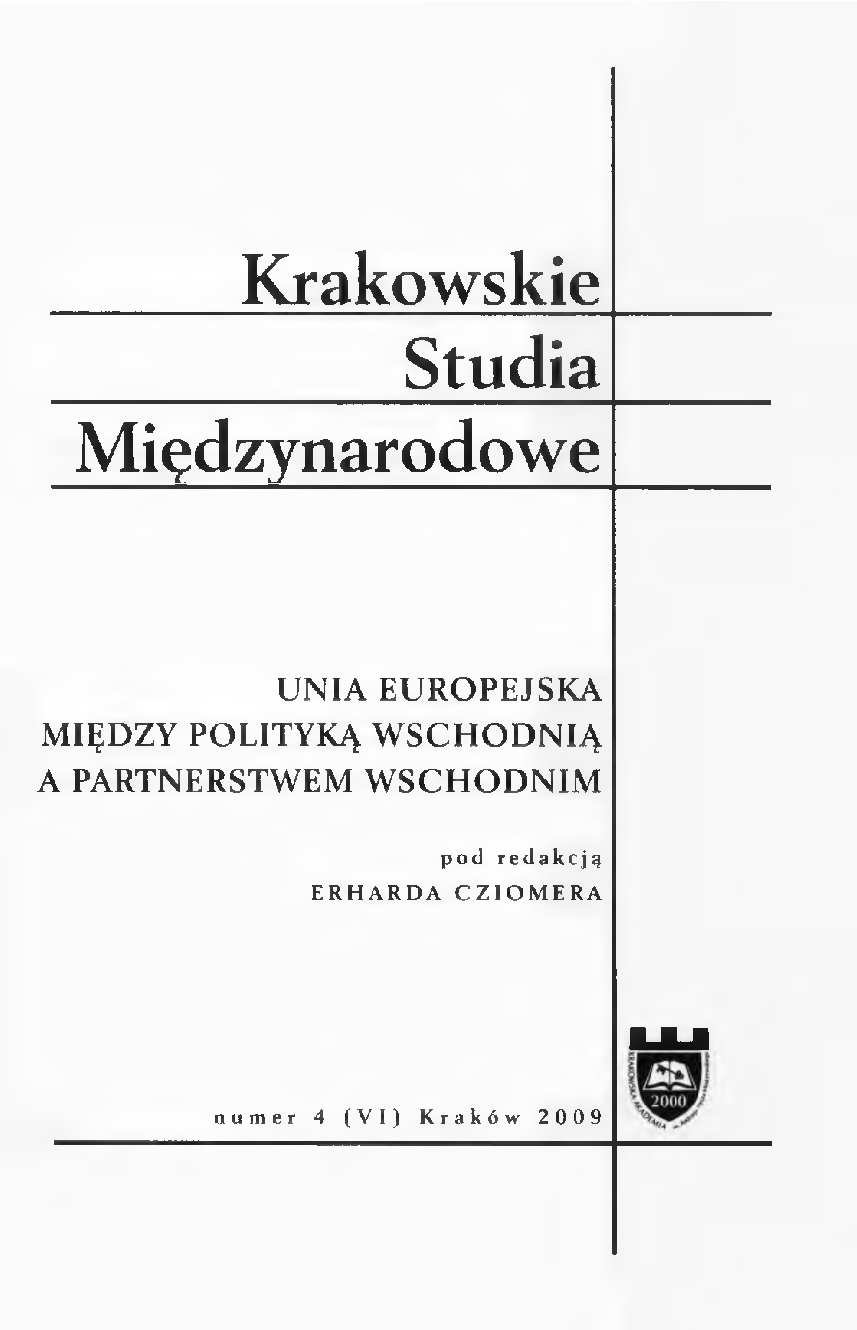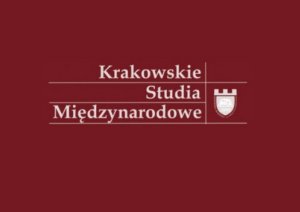![Grzegorz Mazur, Wspólna polityka handlowa Unii Europejskiej [Difin, Warszawa 2017, 244 s.]](/api/image/getissuecoverimage?id=picture_2017_39141.png)
We kindly inform you that, as long as the subject affiliation of our 300.000+ articles is in progress, you might get unsufficient or no results on your third level or second level search. In this case, please broaden your search criteria.
![Grzegorz Mazur, Wspólna polityka handlowa Unii Europejskiej [Difin, Warszawa 2017, 244 s.]](/api/image/getissuecoverimage?id=picture_2017_39141.png)
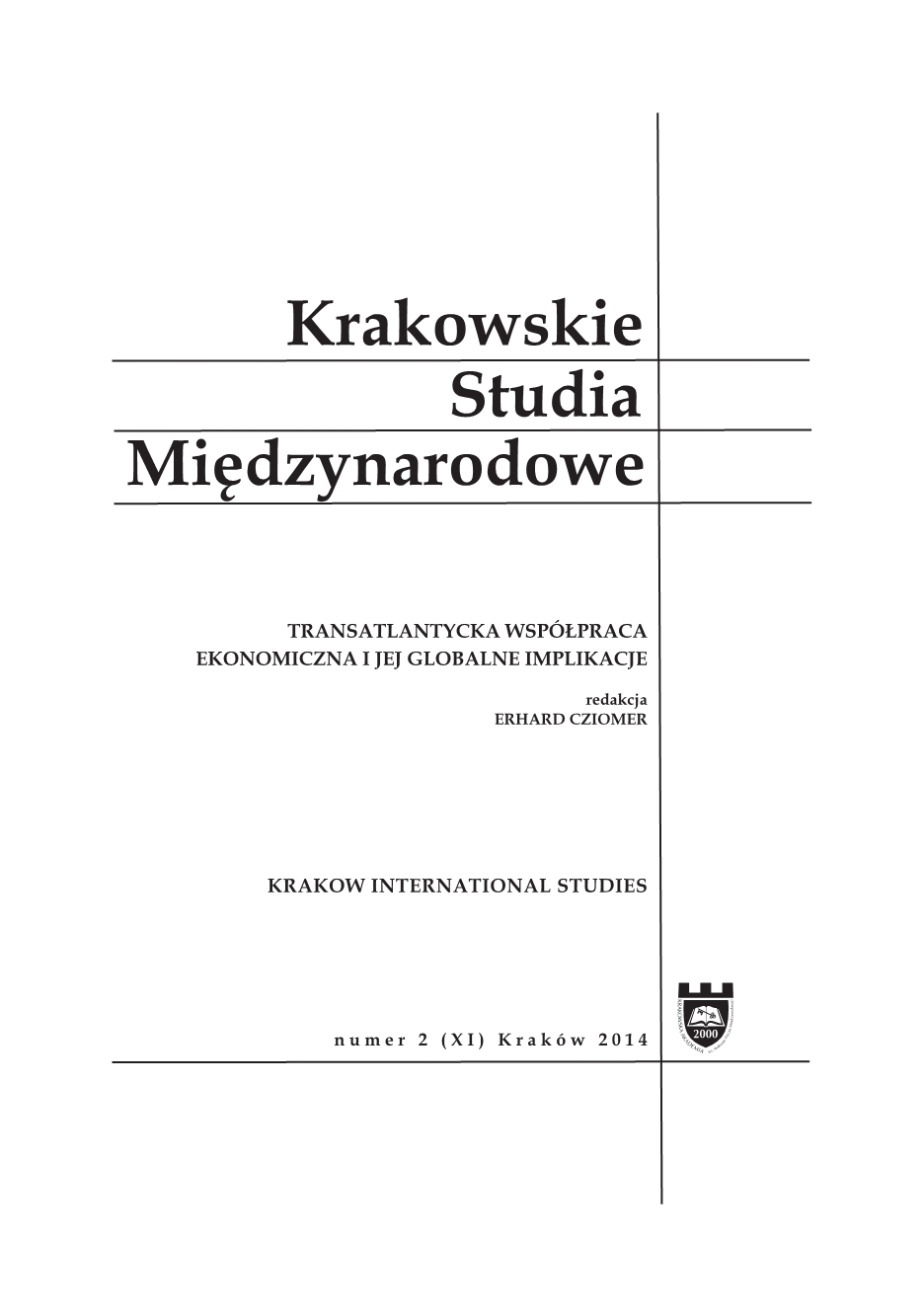
Partnership and Cooperation Agreement is a document regulate the European Union external relations with third countries. Obligatory document between the European Union and Russia from 1999 (1997) expired in 2007 and haven’t been replaced by a new agreement up till now. Negotiate a new treaty which regulates the base relations should be in interest of both sides, according to a strategic partnership. Unfortunately, negotiations for a long time are in impasse. Both of subjects can’t reach a consensus as to scope and content of the document and on matters relating to energy dialogue, European security, policy towards the Commonwealth of Independent States (CIS ) and keep human rights. Conversation were breaking off very often because of the attitude and actions of Russia against individual EU Member States and countries of the (CIS). In the meantime, in the EU proposed to create together with the United States of America, Transatlantic Trade and Investment Partnership introducing free trade area through liberalization of both internal markets. This project obtained a big interest in the EU and then began negotiations which despite of many impediments will have a good prognosis for the future. To conclude, the article aims is to present scope of the new Partnership and Cooperation Agreement between the EU and Russia, indicate the causes and areas of negotiation impasse and to refer to the state of negotiations Transatlantic Trade and Investment Partnership.
More...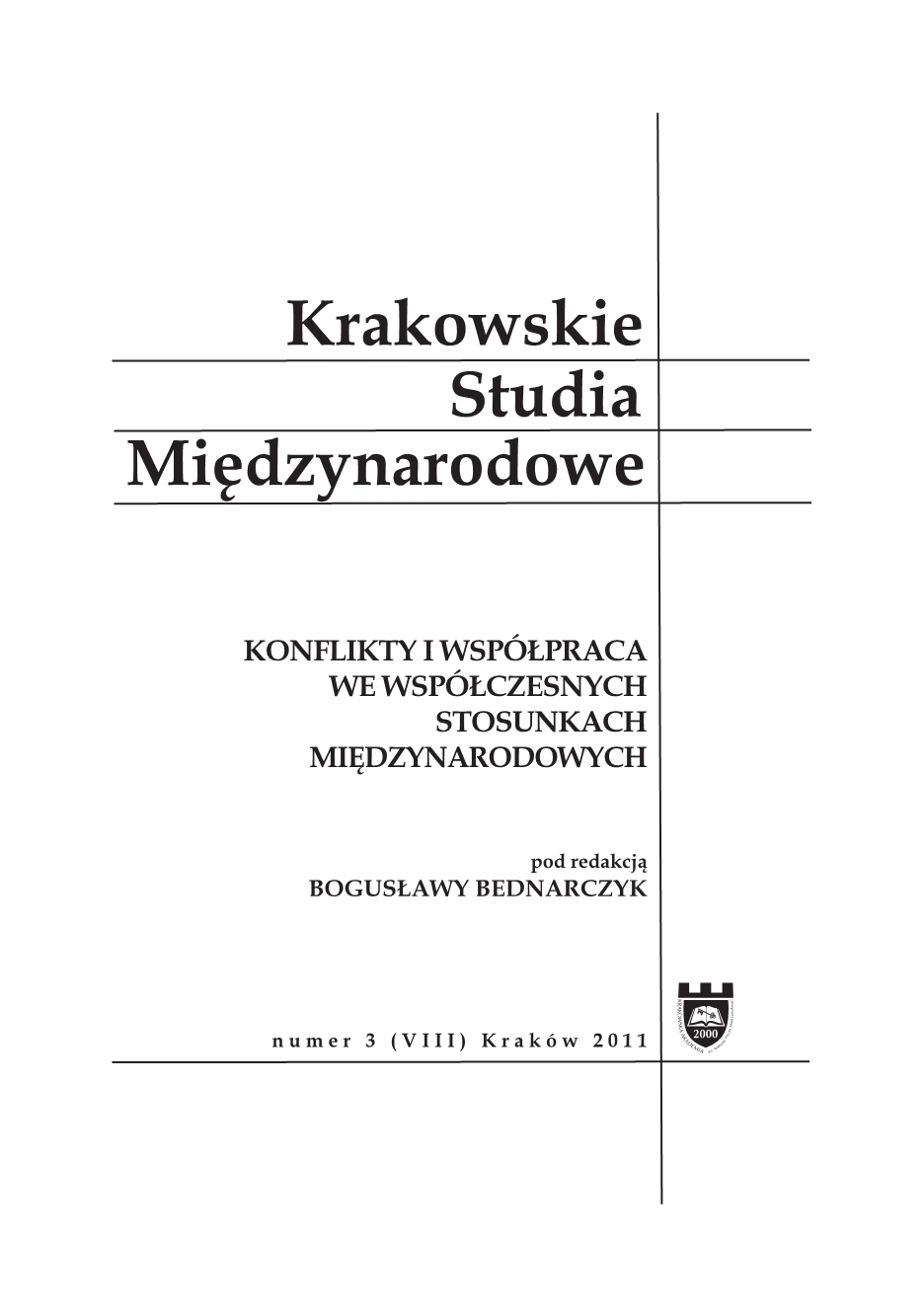

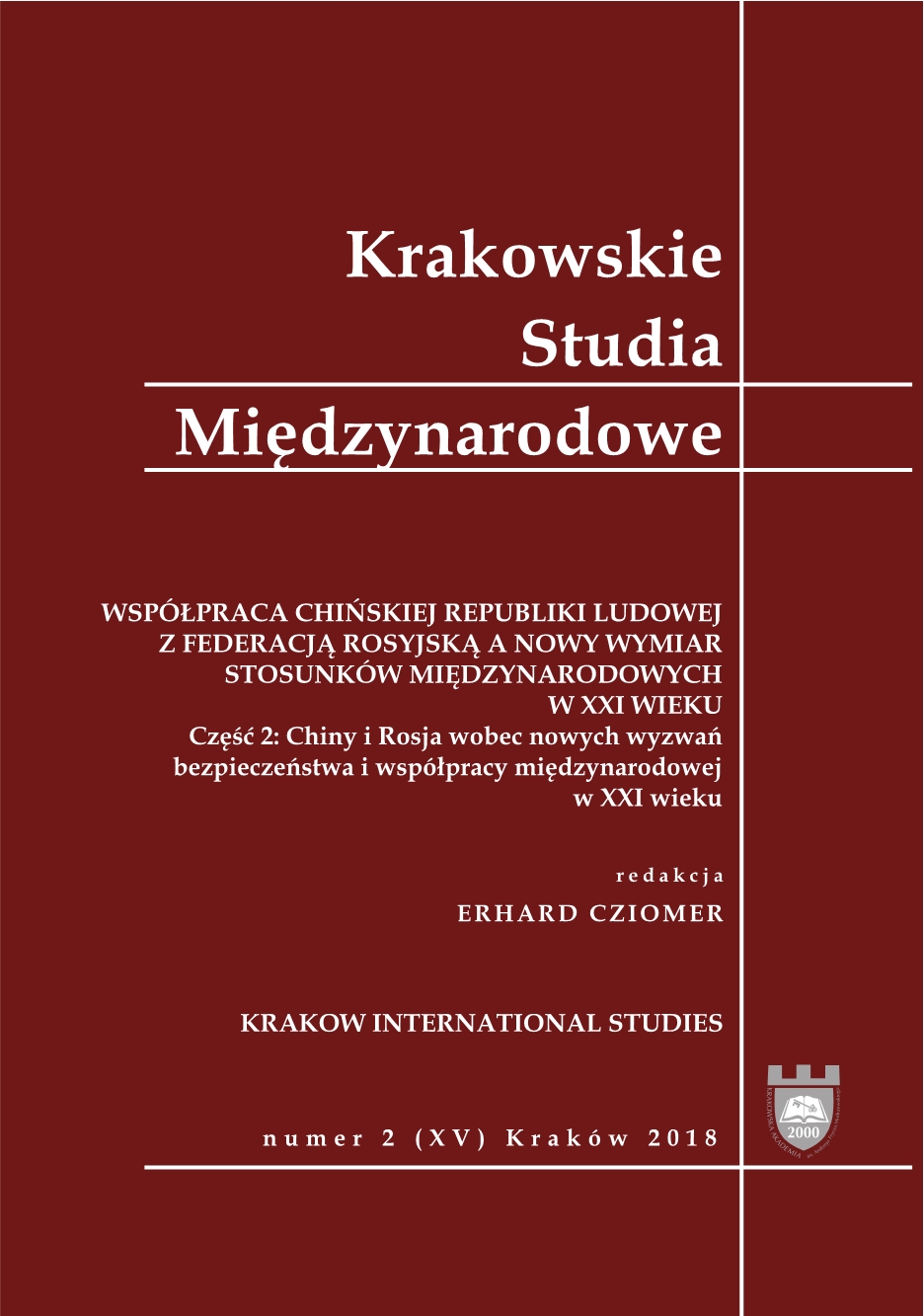
The aim of this article is to analysis the position of the People’s Republic of China with the Polish foreign policy in the second decade of the XXI Century. In recent years the relations between both countries has increase by officials having high level talks. The most important objective of this was the realization the strategic partnership, which was signed in 2011. The author will indicate that this objective has not been realized yet. There is a lot of reasons for this situation. On one hand the hesitation and lack of strategy from the Polish side. On the other hand Chinese political and economical expectations. Finally, the relations between Poland and European Union and the role of this in China’s policy.
More...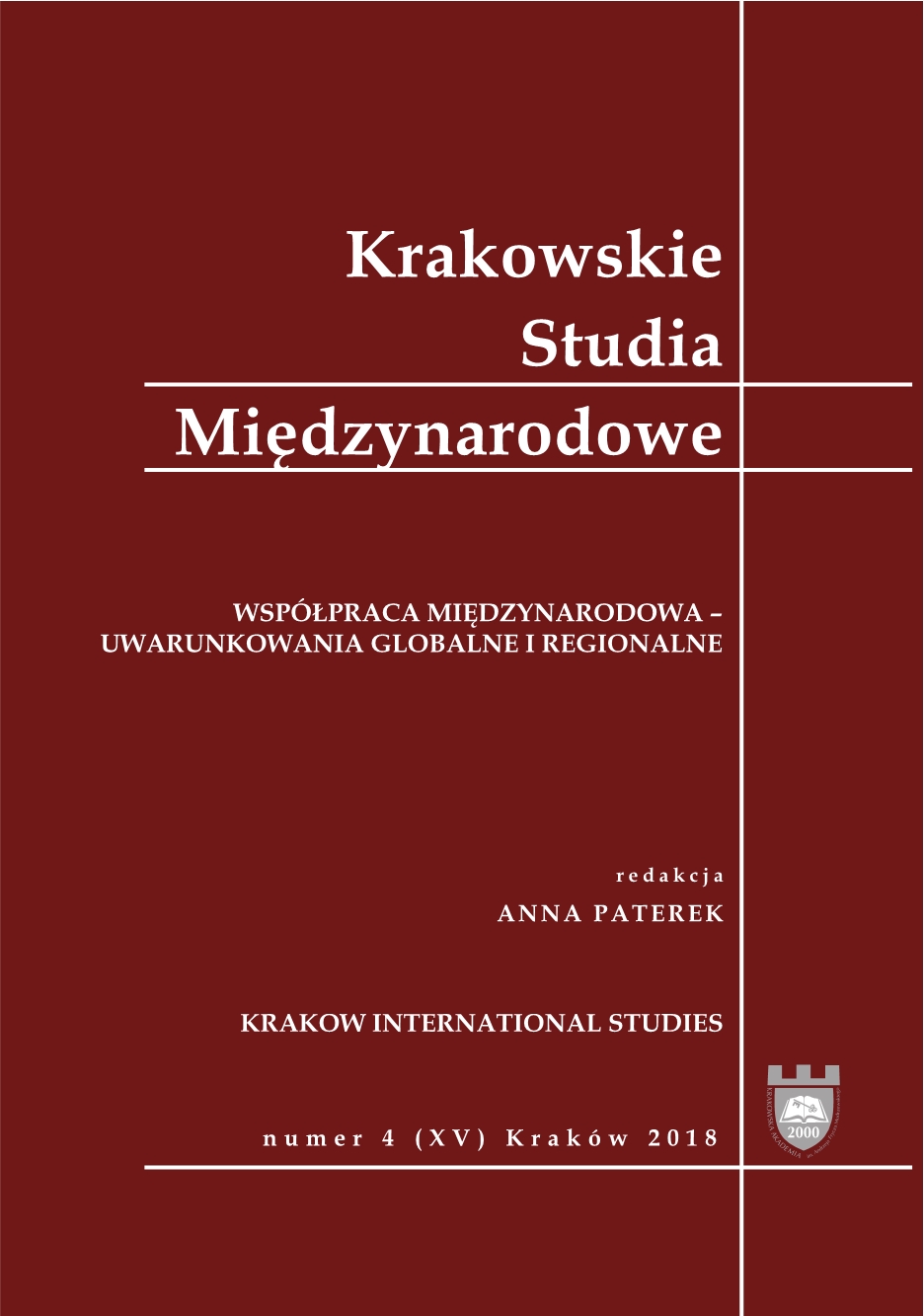
This article concerns the concept of determinants of the state’s foreign policy and their presentation in the context of the influence on the foreign policy of the Slovak Republic. The author decided on determinants, which in his opinion had a key impact on the shape of Slovakia’s foreign policy: geographical environment, historical factors, population factor, foreign service and diplomacy, as well as external conditions. The period of the beginning of the Slovak Republic’s existence was analyzed. The following research hypotheses have been critically verified: among the determinants of Slovakia’s foreign policy, historical factors seemed decisive, especially in the context of relations with Hungary. The second decisive determinant was the deficit in the staff of foreign service and diplomacy, which was important in the context of creating foreign policy from scratch. Finally, the third decisive factor was the multinational nature of this state
More...
The Swiss Confederation, as a neutral state, is forced to apply in its foreign policy instruments classified as the so-called soft power. One of them is development assistance granted to less developed countries, also undergoing the period of political transition. An example of this type of Swiss activities is the assistance to the countries of the South Caucasus, resulting, inter alia, from historical contacts, in modern times initiated as part of humanitarian aid after the earthquake in 1988. Armenia, Azerbaijan and Georgia are supported as part of strategic plans by both the Swiss state and private donors. Switzerland also successfully plays the role of a mediator: in the Georgian-Russian and Turkish-Armenian dispute.
More...
The Author’s goal is to analyze the concept of the Tripartite Partnership as a tool of international cooperation between New Zealand, the People’s Republic of China and the Cook Island. It could be a certain pattern for cooperation between countries in the future. It’s important for the interests of New Zealand, China and the Cook Island in the South Pacific Region. Moreover due to the possibility of developing a model of providing assistance in these fragile countries.
More...